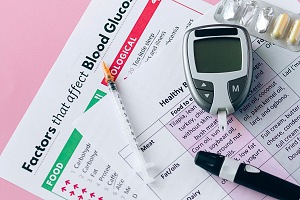Your digestive system doesn’t just process food; it also influences cholesterol screening levels in your bloodstream. The trillions of microbes living in your intestines, collectively termed the gut microbiome, impact how your body absorbs and handles cholesterol.
Comprehending this gut-cholesterol axis uncovers new natural ways to achieve healthy cholesterol levels, opening the door for better heart health. Read on to learn about the biological mechanisms linking your gastrointestinal function to cholesterol balance.
The Liver & Gallbladder: Control Centers for Cholesterol
 Before reaching the bloodstream from food or internal production, cholesterol must first travel through the liver, the body’s primary cholesterol processing hub. The liver manufactures new cholesterol molecules and captures excess from circulation for excretion.
Before reaching the bloodstream from food or internal production, cholesterol must first travel through the liver, the body’s primary cholesterol processing hub. The liver manufactures new cholesterol molecules and captures excess from circulation for excretion.
Your liver bundles cholesterol with little protein envelopes called lipoproteins that function like molecular taxicabs, shuttling cholesterol safely around the body without spillage. LDL and HDL are two famous examples, carrying cargo to and from tissues and blood vessels as needed.
To eliminate excess cholesterol, specialized liver enzymes transform it into bile salts that get stored in your gallbladder. This concentrated bile gets squirted into your small intestine in response to meals, acting similar to a molecular detergent that emulsifies dietary fats for downstream absorption.
Without sufficient bile volume, your body falters at removing both dietary cholesterol sources and internally produced excesses. The result is enhanced intestinal cholesterol absorption and escalations in circulating blood levels.
This interconnected feedback loop shows how ideal digestive organ function establishes the foundation for properly balanced cholesterol ratios and cardiovascular protection.
Gut Bacteria Convert Cholesterol Into Cardioprotective Byproducts
Beyond hosting digestion and nutrient absorption, your intestinal tract houses an impressive population of microorganisms, mainly diverse species of bacteria. Termed the gut microbiota, these microbes engage in a multitude of biochemical conversions that hold systemic effects throughout your physiology, including cholesterol processing.
Certain families of commensal bacteria express specialized enzymes enabling them to convert cholesterol into an intricately related byproduct called coprostanol that is poorly absorbed through intestinal walls. These microbes essentially transform cholesterol into a type that your body excretes rather than absorbs.
Specific genera equipped with this biochemical talent include Bacteroides, Bifidobacterium, Clostridium, Escherichia, Eubacterium, Lactobacillus, and Streptococcus species. Multiple clinical studies verify that humans harboring elevated proportions of cholesterol-to-coprostanol converting bacteria tend to exhibit lower blood cholesterol levels and decreased risk for heart disease over time.
Prebiotics Selectively Stimulate Growth of Beneficial Bacteria
Because precise microbial strains can deactivate cholesterol by metabolizing it into non-bioavailable coprostanol, researchers have been investigating whether probiotic supplements and prebiotic foods that increase the growth of these bacteria may support maintaining already normal cholesterol levels.
While investigation into strain-specific effects continues to expand, inclusion of fermented foods brimming with live mixed microbial cultures seems a foundational strategy for supporting overall microbiome diversity.
Prebiotics, categorized as non-digestible fibers that pass through initial gastrointestinal steps, also show promise for selectively stimulating cholesterol-lowering bacteria upon reaching the colon. By regularly incorporating prebiotic foods or supplements into your diet, you effectively help feed and cultivate communities of ideal commensal flora adept at beneficial cholesterol conversions.
A wholesome diet abundant in a rainbow of phytonutrient-rich fruits, vegetables, herbs, and spices naturally promotes more microbiome diversity, facilitating cholesterol transformation into cardioprotective coprostanol by your intestinal bacteria.
Bacterial Modification of Bile Acids Affects Cholesterol
Beyond directly metabolizing cholesterol, your gut bacteria also chemically modify bile acids secreted from the liver. Bile helps digest fats but also regulates cholesterol synthesis.
Certain bacteria convert bile acids into secondary forms that signal the liver to reduce or increase cholesterol production. Beneficial bacteria make secondary bile acids that lower cholesterol output.
Eating probiotic foods, prebiotics, and plants nurtures bile-altering bacteria. However, microbiome disruption from factors such as antibiotic overuse can reduce good bacteria. Imbalanced bile modification then impairs cholesterol regulation.
Gut microbiome health becomes imperative for ensuring ideal bile acid transformation and healthy cholesterol levels.
Cholesterol Trapping: Direct Bacterial Absorption
Additionally, evidence shows beneficial gut bacteria can directly trap and absorb dietary and bile-derived cholesterol within their cell walls through a process called cholesterol entrapment.
Once bound up, cholesterol gets excreted rather than reabsorbed. Common probiotic strains such as Lactobacillus and Bifidobacterium exhibit this binding capability similar to a sponge.
Specific strains and enzymatic factors influence efficiency. Nonetheless, actively cultivating specialized cholesterol-absorbing bacteria provides another route for reducing high blood cholesterol.
Gut Dysbiosis and Cholesterol
 When the harmonious balance of gut microbes gets disrupted into an unhealthy state called dysbiosis, negative effects on cholesterol frequently ensue. Dysbiosis enables overgrowth of harmful bacteria that suppress both bile acid transformation and direct cholesterol breakdown.
When the harmonious balance of gut microbes gets disrupted into an unhealthy state called dysbiosis, negative effects on cholesterol frequently ensue. Dysbiosis enables overgrowth of harmful bacteria that suppress both bile acid transformation and direct cholesterol breakdown.
Thus, cholesterol absorption and blood levels commonly spike. Restoring a flourishing and diverse gut microbiome becomes essential through dietary improvements, lifestyle changes, targeted supplements, and stress management approaches.
Improve Your Gut Health and Cholesterol Screening Levels with Imperial Center Family Medicine
Given the connections between digestive function, microbiome makeup, bile acid transformation, cholesterol absorption, and measurable blood lipids, addressing gut/microbiome health can significantly affect cholesterol screening levels.
Individualized testing analyzes your specific lifestyle context, microbiome, digestion, and genetics, uncovering problematic areas that may require personalized therapy, such as dietary plans, microbiome enhancement, stress reduction, and nutraceuticals to achieve a sustainable balance from within.
Imperial Center Family Medicine blends holistic healing with advanced clinical testing because heart wellness requires an integrative perspective, especially regarding your gastrointestinal system and cholesterol metabolism. Contact us today at 919-873-4437 or online to book a consultation.
